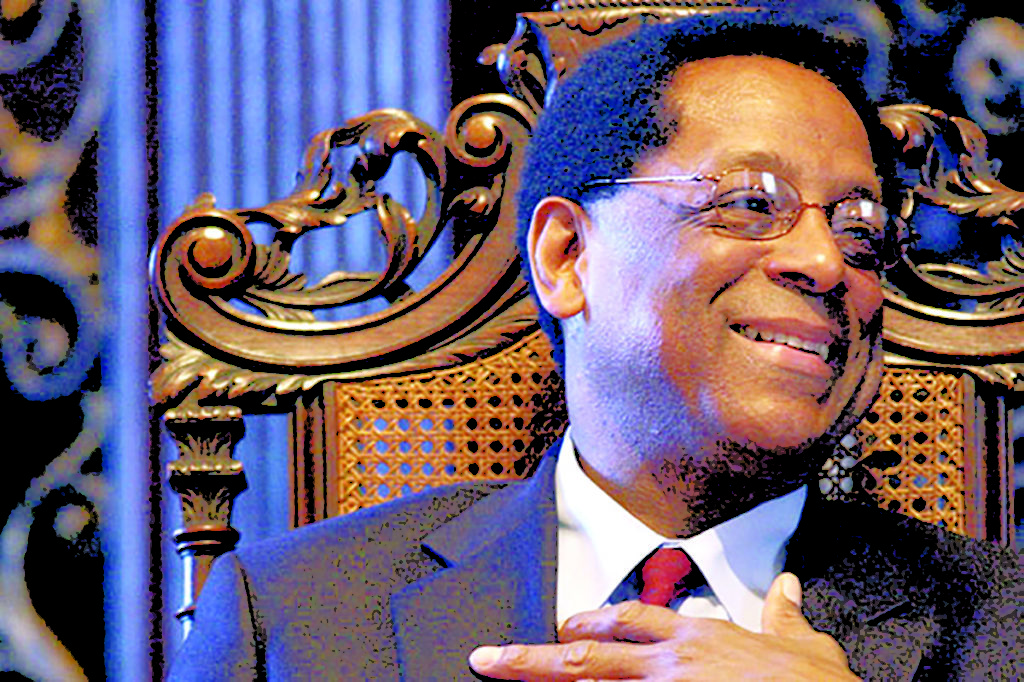By Matt Schudel
Washington Post
Dr. S. Allen Counter, a Tennessee State University graduate and Harvard scientist best known for championing the achievements of African American explorer Matthew Henson and for traveling to Greenland, where he found descendants of Henson and fellow polar explorer Robert E. Peary.” Dr. Counter died on July 12, 2017.
Counter, a neurobiologist, joined the Harvard faculty in 1970 and later became a neurology professor at Harvard Medical School. He was also the long time director of the Harvard Foundation for Intercultural and Race Relations.
In his academic work, Dr. Counter branched into ethnographic studies of African descendants around the world and produced award-winning documentaries about isolated populations of former slaves in Ecuador and Suriname (the former Dutch Guiana).
“There is no purer group of Africans in the Western hemisphere than those communities living along the rivers of the Suriname interior,” Dr. Counter told New African magazine in 2009. “These people have changed very little in 300 years. In many ways they were more African than many Africans today!”
As a child, Dr. Counter had learned about Henson, who was sometimes described as Peary’s valet. In fact, they were near-equal partners during more than 20 years of Arctic expeditions that began in 1888. Henson spoke local Inuit languages better than Peary did and helped lead several journeys aimed at reaching the North Pole.
On April 6, 1909, Henson helped raise the Stars and Stripes at or near the North Pole. Scholars have debated whether Henson and Peary actually reached the pole, but Dr. Counter was convinced they had.
Peary was later promoted to the naval rank of rear admiral. After he died in 1920, he was buried at Arlington National Cemetery. Henson died in poverty in 1955 and was buried in the Bronx.
While studying in Sweden in the 1970s, Dr. Counter heard stories of dark-skinned residents of Greenland, possibly related to Henson.
“The only black man known to have interacted with the Eskimos was Henson,” Dr. Counter told the New York Times in 1986, “so I decided to track down his descendant.”
That year, he traveled to a small settlement in northern Greenland and was directed to one of the village’s eight houses.
“I walked up to the house,’’ Dr. Counter said later. “An old man came out. I told him my name through the interpreter and said I was looking for the son of Mai Palug, which means Matthew the Kind One. He laughed and said it was he.”
His name was Anaukaq, and he had been born to an indigenous woman after Henson and Peary had visited the region. He was 80 years old and had five children and 22 grandchildren but, until he met Dr. Counter, had never met anyone with the same features and skin color.
“You must be a Henson who has come to look for me,” he told Dr. Counter.
Anaukaq also said that Peary had a son in Greenland, and Dr. Counter continued his journey until he found another 80-year-old man, Kali Peary.
In 1987, Dr. Counter arranged for both men to visit the United States, where they were reunited with cousins they didn’t know they had. Anaukaq died soon afterward.
A year later, Dr. Counter arranged for Henson to be reinterred next to Peary at Arlington National Cemetery. Descendants of both explorers, from the United States and Greenland, attended the ceremony.
“Welcome to the company of your friend Robert Peary,” Dr. Counter said. “Welcome to a place always yours by right but denied you.”
Samuel Allen Counter Jr. was born July 8, 1944, in Americus, Ga., and grew up near West Palm Beach, Fla. His father was a business manager, and his mother was a nurse.
Dr. Counter graduated in 1965 from Tennessee State University, and five years later received a doctorate in neurobiology from Case Western Reserve University in Cleveland. He later obtained another doctorate, in medical science, from the Karolinska Institute in Stockholm.
In 1981, Dr. Counter was named the first director of the Harvard Foundation, which conducts programs for the university’s students and faculty on cross-cultural and international understanding. He remained director of the foundation, and a member of the medical school faculty, until his death.
In 1991, Dr. Counter published a book about Henson, “North Pole Legacy: Black, White and Eskimo.”
He said Henson and Peary both had long-term relationships with Inuit women during an expedition in 1905 and 1906. (Peary had a wife in the United States; Henson was single at the time.) The two women, who had children with the explorers, eventually married Inuit brothers and raised their half-American sons as cousins.
“They said their children, and their children’s children would sing songs of Matthew Henson,” Dr. Counter said in 1992. “He was more like them than anyone from the outside.”


